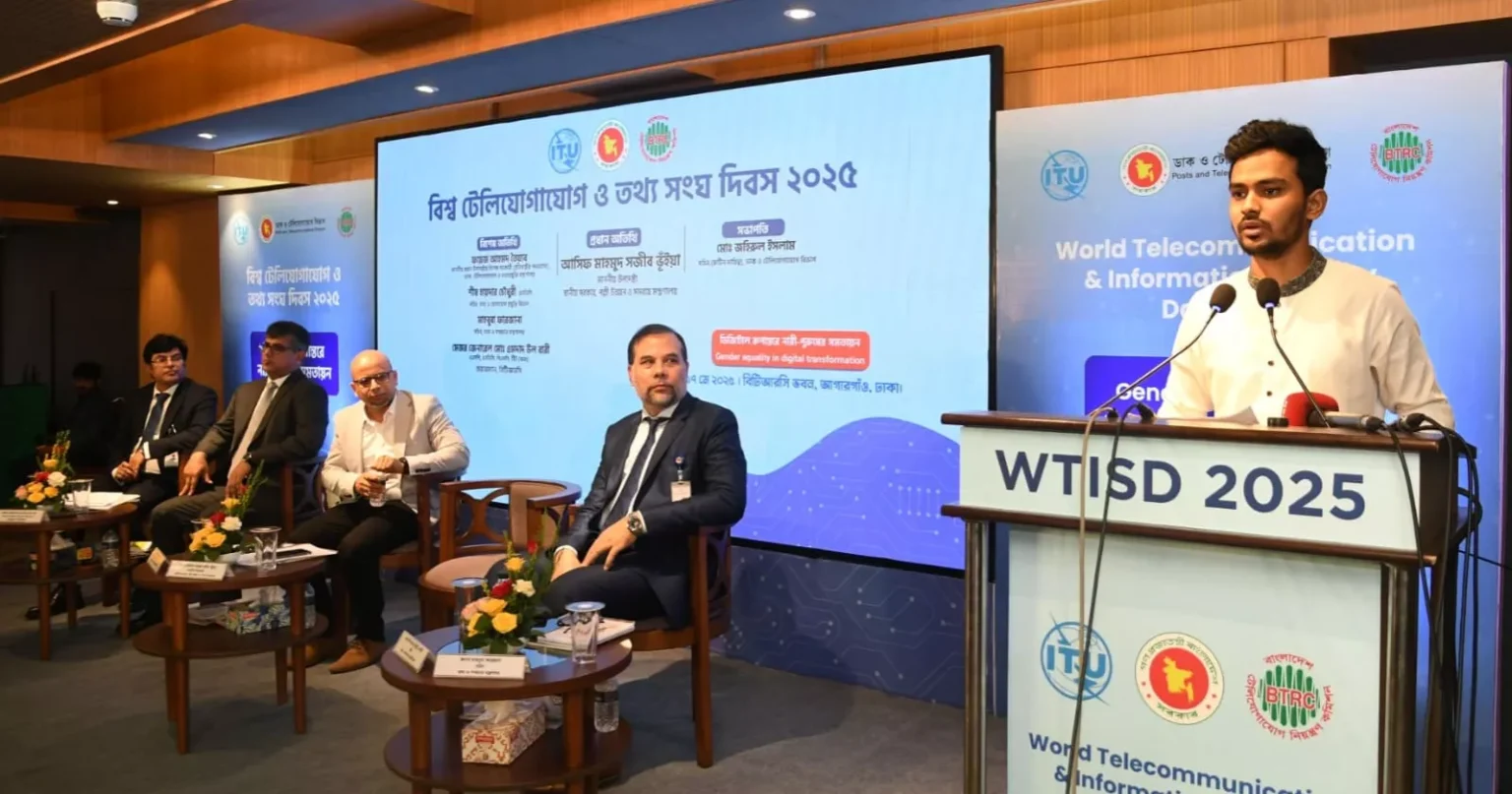Local Government, Youth and Sports Adviser Asif Mahmud Shojib Bhuyain on Saturday emphasised the importance of identifying barriers to women’s participation in the ICT sector and framing policies accordingly, UNB reports.
“The RMG sector is one of the most successful industries in our country, and a key reason behind its success is the significant participation of women. Likewise, it is important to identify barriers and shape policies to ensure women’s participation in ICT,” he said while speaking as the chief guest at a seminar marking World Telecommunication and Information Society Day at the BTRC in the capital.
He further pointed out that women often fall victim to cyberbullying, harassment, or violence on social media platforms and the government has taken such issues into account.
Among the special guests were Special Assistant to the Chief Adviser for Ministry of Posts, Telecommunications and Information Technology Faiz Ahmad Taiyeb, Secretary of the ICT Division Shish Haider Chowdhury, and Secretary of the Ministry of Information and Broadcasting Mahbuba Farzana.
Faiz said, “In various digital indicators — such as digital governance, e-learning, and internet access — women continue to lag behind. As policymakers, it is our duty to address this gap, and we are committed to ongoing efforts in this regard.”
He stressed the need for collaboration among all industry stakeholders to eliminate gender disparities in the ICT sector.
Highlighting government efforts, he mentioned a project titled “Nagorik Sheba” aimed at bringing government services from urban centres to mobile devices and grassroots communities.
“As part of this initiative, we have begun training entrepreneurs and have tried to ensure that around 50% of trainees are women,” he said.
On legal protections, he added, “We have included a gender-sensitive provision under Section 25 of the new Cyber Security Act. For the first time in the country’s legislative history, this provision ensures enhanced protection for women against sexual harassment, blackmail, and the dissemination of obscene content.”
He added that materials related to sexual abuse, child sexual exploitation, sextortion, and any form of cyberbullying are recognised as crimes under this law.
Faiz noted that the law has already been approved by the Cabinet Division and is expected to be published in the official gazette in the coming weeks.


